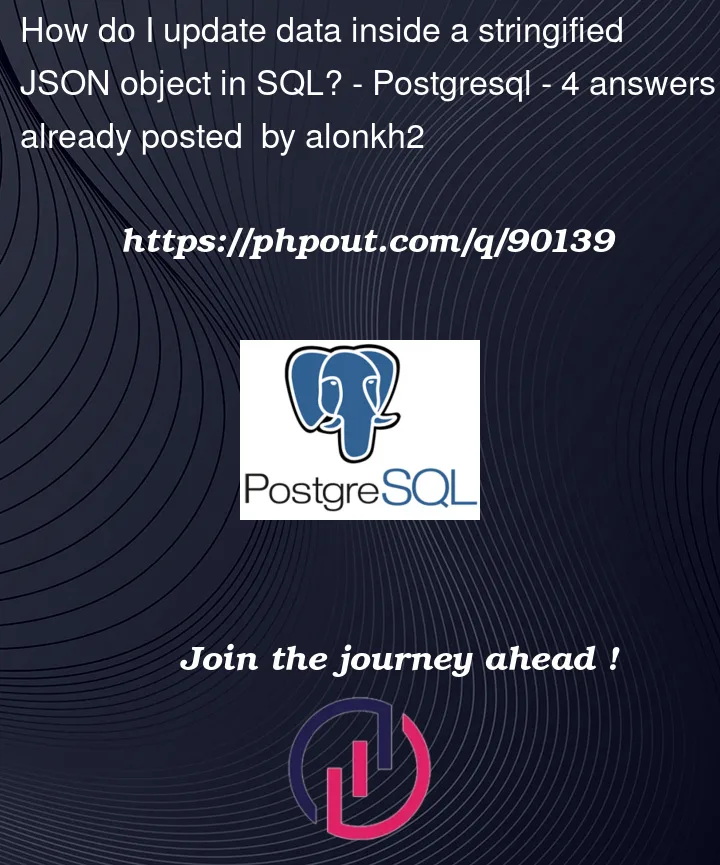So I have three databases – an Oracle one, SQL Server one, and a Postgres one. I have a table that has two columns: name, and value, both are texts. The value is a stringified JSON object. I need to update the nested value.
This is what I currently have:
name: 'MobilePlatform',
value:
'{
"iosSupported":true,
"androidSupported":false,
}'
I want to add {"enableTwoFactorAuth": false} into it.




4
Answers
In PostgreSQL you should be able to do this:
In Postgres, the plain concatenation operator
||forjsonbcould do it:If a top-level key
"enableTwoFactorAuth"already exists, it is replaced. So it’s an "upsert" really.Or use
jsonb_set()for manipulating nested values.The cast back to
textworks implicitly as assignment cast. (Results in standard format; any insignificant whitespace is removed effectively.)If the content is valid JSON, the storage type should be
jsonto begin with. In Postges,jsonbwould be preferable as it’s easier to manipulate, but that’s not directly portable to the other two RDBMS mentioned.(Or, possibly, a normalized design without JSON altogether.)
Two of the databases you are using support JSON data type, so it doesn’t make sense to have them as stringified JSON object in a Text column.
Oracle: https://docs.oracle.com/en/database/oracle/oracle-database/21/adjsn/json-in-oracle-database.html
PostgreSQL: https://www.postgresql.org/docs/current/datatype-json.html
Apart from these, MSSQL Server also provides methods to work with JSON data type.
MS SQL Server: https://learn.microsoft.com/en-us/sql/relational-databases/json/json-data-sql-server?view=sql-server-ver16
Using a JSON type column in any of the above databases would enable you to use their JSON functions to perform the tasks that you are looking for.
If you’ve to use Text only then you can use
replaceto add the key-value pair at the end of your JSONHere
dataTableis the name of table.The cleaner and less riskier way would be connect to db using the application and use JSON methods such as
JSON.parsein Javascript andJSON.loadsin Python. This would give you the JSON object (dictionary in case of Python) to work on. You can look for similar methods in other languages as well.But i would suggest, if possible use JSON columns instead of Text to store the JSON value wherever possible.
For ORACLE 21
With json_col being JSON or VARCHAR2|CLOB column with IS JSON constraint.
(but must be JSON if you want a multivalue index on json_value.name:
)